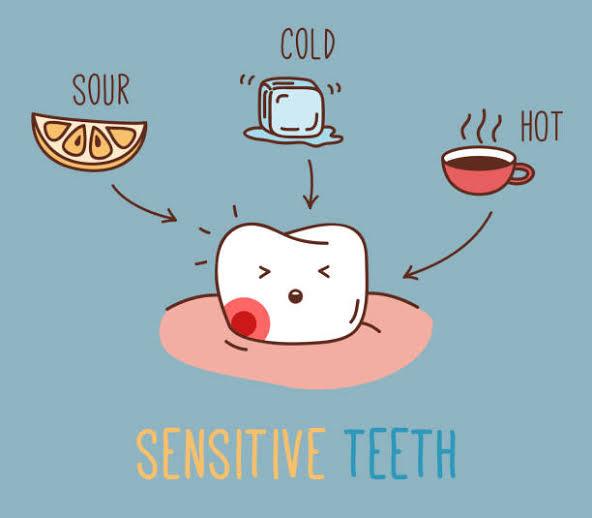
If you’ve ever felt a sharp pain when drinking something cold or hot, you might be dealing with tooth sensitivity. It’s one of the most common dental problems, and while it can be uncomfortable, it’s usually easy to treat with the right care. Let’s take a closer look at what tooth sensitivity is, what causes it, and how you can manage it.
What is Tooth Sensitivity?
Tooth sensitivity happens when the protective layer of enamel on your teeth wears down, or if your gums recede, exposing the softer, more sensitive part of your tooth called the dentin. The dentin is connected to nerves inside your teeth, which is why hot, cold, sweet, or acidic foods and drinks can trigger sharp pain.
What Causes Tooth Sensitivity?
There are several reasons why you might experience tooth sensitivity. Some of the most common causes include:
- Brushing Too Hard: Using a hard-bristled toothbrush or brushing too aggressively can wear down enamel over time.
- Gum Recession: As you age, your gums might start to pull back from your teeth, exposing the sensitive root areas.
- Tooth Decay: Cavities can lead to sensitivity if they reach the inner layers of the tooth.
- Acidic Foods and Drinks: Foods like citrus fruits, soda, and wine can erode enamel, making your teeth more sensitive.
- Teeth Grinding (Bruxism): If you grind your teeth at night, it can wear down enamel and lead to sensitivity.
How to Manage Tooth Sensitivity
The good news is that tooth sensitivity can usually be managed with some simple steps:
- Use a Soft-Bristled Toothbrush: Switch to a soft toothbrush and brush gently. This will help protect your enamel from damage.
- Switch to a Toothpaste for Sensitive Teeth: Special toothpastes designed for sensitive teeth can help block pain and reduce discomfort.
- Avoid Acidic Foods and Drinks: Cut back on foods and drinks that can erode enamel, like citrus fruits, soda, and coffee.
- Wear a Mouthguard: If you grind your teeth, talk to your dentist about getting a mouthguard to protect your teeth while you sleep.
- Visit Your Dentist: If the sensitivity persists or gets worse, it’s important to visit your dentist. They can check for cavities, gum disease, or other issues that might be causing your discomfort.
Conclusion
Tooth sensitivity is a common problem, but with a little care, it can be easily managed. By using the right toothpaste, brushing gently, and avoiding certain foods and habits, you can keep your teeth comfortable and pain-free. If you ever feel unsure or the sensitivity worsens, don’t hesitate to reach out to your dentist. They can help you find the right solution to keep your smile healthy and happy!
